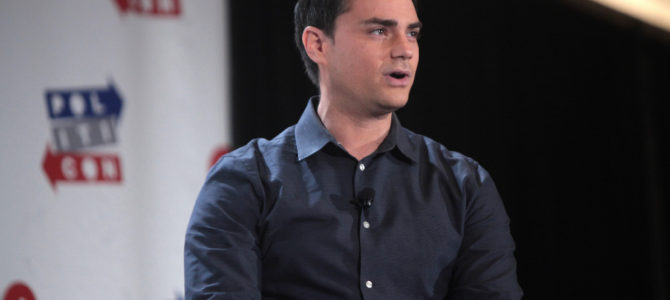Watching the University of California-Berkeley descend into a “progressives only” institution devoid of “wrongthink” has been fascinating. The people the university is now turning away or restricting have gone from large-scale provocateur types (Milo Yiannopoulos and Ann Coulter) to people progressives simply can’t argue with and therefore want ignored.
Last week, the university’s dean of students denied the Berkeley College Republican’s request to bring columnist and Daily Wire editor-in-chief Ben Shapiro to campus. In an email to BCR, the university said it had made “extensive efforts” to find a venue for Shapiro, even though his speech was more than two months away. Further, the university told BCR that Shapiro could only come to campus “when events are held at a time and location that allow for the provision of any required security measures.”
It appeared that Berkeley was fearful of another riot like what occurred when Yiannopoulos came to speak. Student protesters were joined by outsiders who threw fireworks at the building where Yiannopoulos was scheduled to speak. They also started fires.
When Coulter was scheduled to speak, Berkeley showed that it was more interested in trying not to upset an angered mob than allowing free and open discourse. The university put heavy restrictions on Coulter’s appearance and refused to take steps to protect those who would attend her speech. Eventually, Coulter had to back out, and the BCR and Young America’s Foundation, which was helping host the conservative commentator, filed lawsuits against the school.
After Berkeley initially denied Shapiro’s appearance, a media backlash ensued and the school reversed course. The school will now allow Shapiro to come, but at a smaller venue (the school claimed all large venues were booked for the day Shapiro agreed to attend). The school will also waive the venue fee.
This is at least a small good-faith effort from the school, but if Berkeley continues to limit speakers based on how the worst the progressive movement has to offer will react, it will be sending a message that riots over speech are acceptable.
When Berkeley first denied Shapiro, YAF spokesman Spencer Brown pointed out that liberal speakers faced no barriers to campus appearances: “An endless stream of liberal speakers continue to be granted opportunities to speak, unobstructed by time, place, or manner restrictions while conservatives are continually treated unequally, and repeatedly relegated to the margins of campus activity,” Brown said.
In a joint statement from YAF and BCR released Monday, Spencer asked why Berkeley suddenly reversed course.
“We would like to know what changed so suddenly that Berkeley administrators are able to grant a space for Ben Shapiro to speak, and why this option wasn’t made available for earlier attempts by YAF and BCR to bring Ann Coulter and David Horowitz to campus,” Brown said. “The school is trying to save face, and Berkeley now wants a gold star for providing a venue, an act that should not require an ongoing federal lawsuit and nationwide outcry to accomplish.”
Berkeley and other schools need to send the message that conservatives are allowed to speak, even if many disagree with them. Even though the school is now allowing Shapiro to speak, its actions made clear that it would have rather denied him the opportunity. It was only after a media backlash that the school changed its tune.
Berkeley needs to take a hard stance now to show that violence is not an acceptable response to speech, and that the school will concern itself with open dialogue instead of trying to appease rioters.









